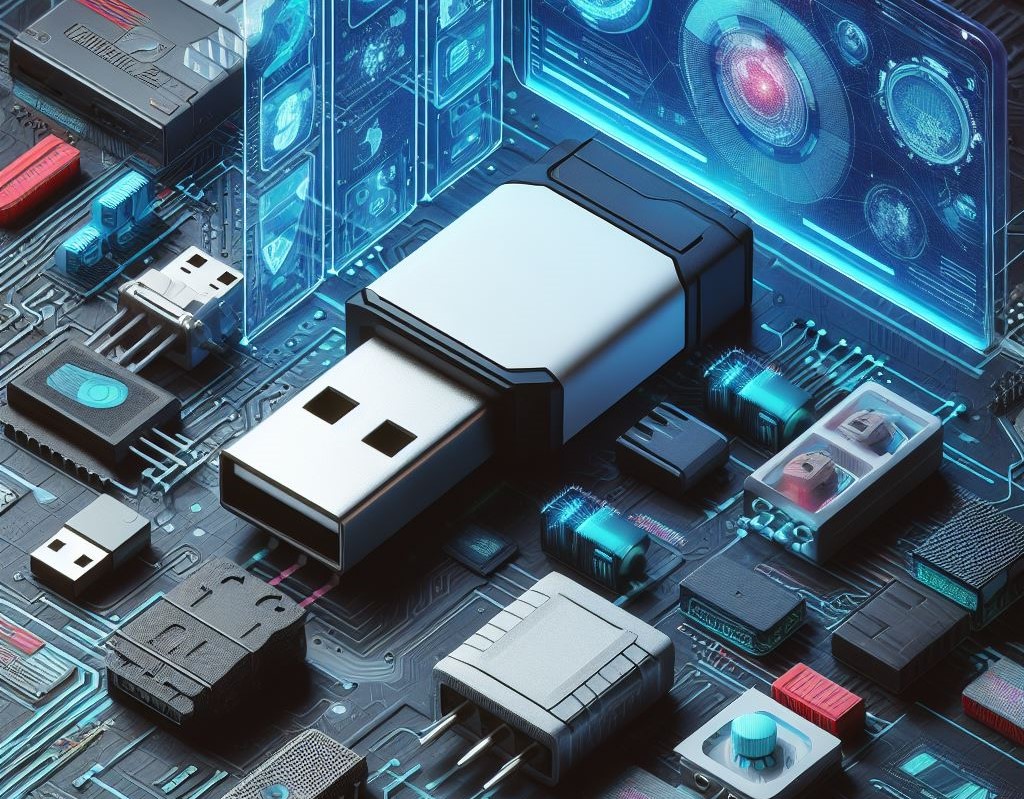Image created by Image Creator from MIcrosoft® Bing®.
Juice jacking is a cyberattack where hackers can access your personal data or install malware on your device when you use a public USB charging station or an infected device to charge your device. This can happen at airports, hotels, cafes, or any other place where you plug in your phone to charge. Juice jacking attacks are not very common yet, but they are still possible and pose serious risks to users’ privacy and security.
In 2019, the Los Angeles County District Attorney’s Office warned travelers about juice jacking at public charging stations in airports and hotels. The FBI issued a similar warning in 2023. Travelers were advised to carry their own chargers and USB cords and use an electrical outlet instead of a public USB port.
Juice jacking allows attackers to access your smartphone’s data through a USB cable when it’s charging. This can happen when you plug your phone into a public charging station that has been compromised by malware or connected to a hacker’s computer. The attackers can then steal your personal information, such as passwords, contacts, photos, messages, or even install malicious software on your device. Juice jacking can compromise your security and privacy, and expose you to identity theft, fraud, or blackmail.
How Juice Jacking Works
A USB port has several pins inside it, but only one of them is required for charging a device. The rest of the pins are for data transfers, which means that your device can exchange data with the port when you plug it in. One of the risks of using public USB charging stations is that they can be used to infect your phone with malicious software that can compromise your security and privacy.
A USB port is not only a way to charge your device, but also a data transfer channel that can allow hackers to access your files and copy them without your permission. They can also use this channel to install spyware that can monitor your keystrokes and send them to a remote server, where they can log into your online accounts and steal your information. Another type of malicious software that hackers can install through juice jacking is malware that can affect your phone’s performance and functionality. Malware can track your location, display unwanted ads, lock your files and ask for ransom, or add your device to a botnet that can be used for launching cyberattacks.
How to Prevent Juice Jacking
To prevent juice jacking, you should avoid using public USB ports and instead use your own chargers or power banks. Alternatively, you can use USB data blockers, which are small devices that block the data transfer pins of the USB cable, allowing only power to pass through. This way, only power can reach your phone and no malicious code can be loaded by hackers. To quote cybersecurity expert and retired FBI Special Agent John Iannarelli (FBI John), “Think of it like a traffic cop directing power to flow through one lane while blocking off the other lane entirely.”
USB data blockers are also sometimes referred to as “USB condoms”. They are very affordable and simple to use. You just have to connect them to your charging cable before inserting it into a public USB port. A USB data blocker is a smart and very effective way to safeguard your data and device from juice jacking. You can find USB data blockers online and, in many electronics, and office supply stores.
Here are a few examples of some available USB data blockers:
PortaPow USB Data Blocker (Red): This is a third-generation data blocker that physically shows you that it is blocking data with a red LED light. It also has a smart charging chip that switches between Apple, Universal and Samsung standards to ensure fast charging up to 2.4A. It is compatible with most USB-A devices, such as iPhones, iPads, Android phones, tablets, cameras, etc. It costs $6.59 on Amazon, and has a 4.6 out of 5 stars rating based on 2,197 customer reviews.
JSAUX USB Data Blocker (4-Pack): This is a pack of four data blockers that are compatible with quick charge devices. They have a simple design and come in red color. They protect against juice jacking and refuse hacking, providing safe charging. They are compatible with most USB-A devices that support quick charge, such as Samsung Galaxy S10/S9/S8/Note 10/9/8, LG G5/G6/V20/V30, etc. They cost $9.99 on Amazon, and have a 4.7 out of 5 stars rating based on 1,036 customer reviews.
Ipremium USB Data Blocker (4-Pack): This is another pack of four data blockers that support fast charge up to 50V, 5A. They have a sleek design and come in black color. They prevent juice jacking and ensure data safety while charging. They are compatible with most USB-C devices that support fast charge, such as MacBook Pro/Air, iPad Pro/Air/Mini, iPhone 12/11/XS/XR/X/8/7/6/SE/5S/5C/5, etc. They cost $8.99 on Amazon, and have a 4.6 out of 5 stars rating based on 1,050 customer reviews.
Juice jacking is a serious threat to security and privacy. By using a data blocker, you can enjoy the convenience of charging your phone without risking your personal information.
Source
FBI John
FBIJohn.com
*The views and opinions expressed on this website are solely those of the original authors and contributors. These views and opinions do not necessarily represent those of Spotter Up Magazine, the administrative staff, and/or any/all contributors to this site
